We caught up with the brilliant and insightful Emma Freeberg a few weeks ago and have shared our conversation below.
Hi Emma, thanks for joining us today. Let’s jump right into the heart of things. Outsiders often think businesses or industries have much larger profit margins than they actually do – the reason is that outsiders are often unaware of the biggest challenges to profitability in various industries – what’s the biggest challenge to profitability in your industry?
I’ve only been baking for about four years but as soon as I started looking into selling my goods there was one thing in particular that immediately popped up in every blog I read on the subject: Under Charging. Home bakeries are often just one person, which on the surface sounds like would keep labor costs low, but in reality it means that the one baker is doing literally everything it takes to run that business and they’re not factoring that effort into the final price of the product. Time and again I read about the fact that when most home bakers are starting out they just charge for the cost of ingredients and a couple hours of labor to put the thing together, when they should be including all the minute costs like gas to get the supplies, a portion of their energy bill, the subscription paid for additional cloud space to store the literally thousands of photos involved in selling cakes online (very personal example), cleaning supplies and the labor involved in putting your kitchen back to right after baking, etc. Basically all the time and money that goes into a home bakery should be accounted for and included in the cost of the cakes… but when starting out, the majority of home bakers (myself included), don’t feel like they have the right to charge what they actually need to in order to maintain a profitable business. It’s an internal struggle that I’m sure a lot of creative entrepreneurs have “If this job is Fun, and I’m doing it out of my own home, then do I deserve to charge that much? Who would pay that to little old me (they could make this at home if they really wanted) I didn’t go school for this so can’t say I’m an expert—I’m not worthy.” And once you start off at a certain price point, then realize it’s completely unsustainable, it’s incredibly hard to raise the price because then there’s a new layer to that inner dialogue: “my audience is going to laugh, balk, or disappear.” But the fact is that there are clients out there that are more than willing to pay what a home baker needs, it’s just a matter of finding the confidence within ourselves to ask for it.
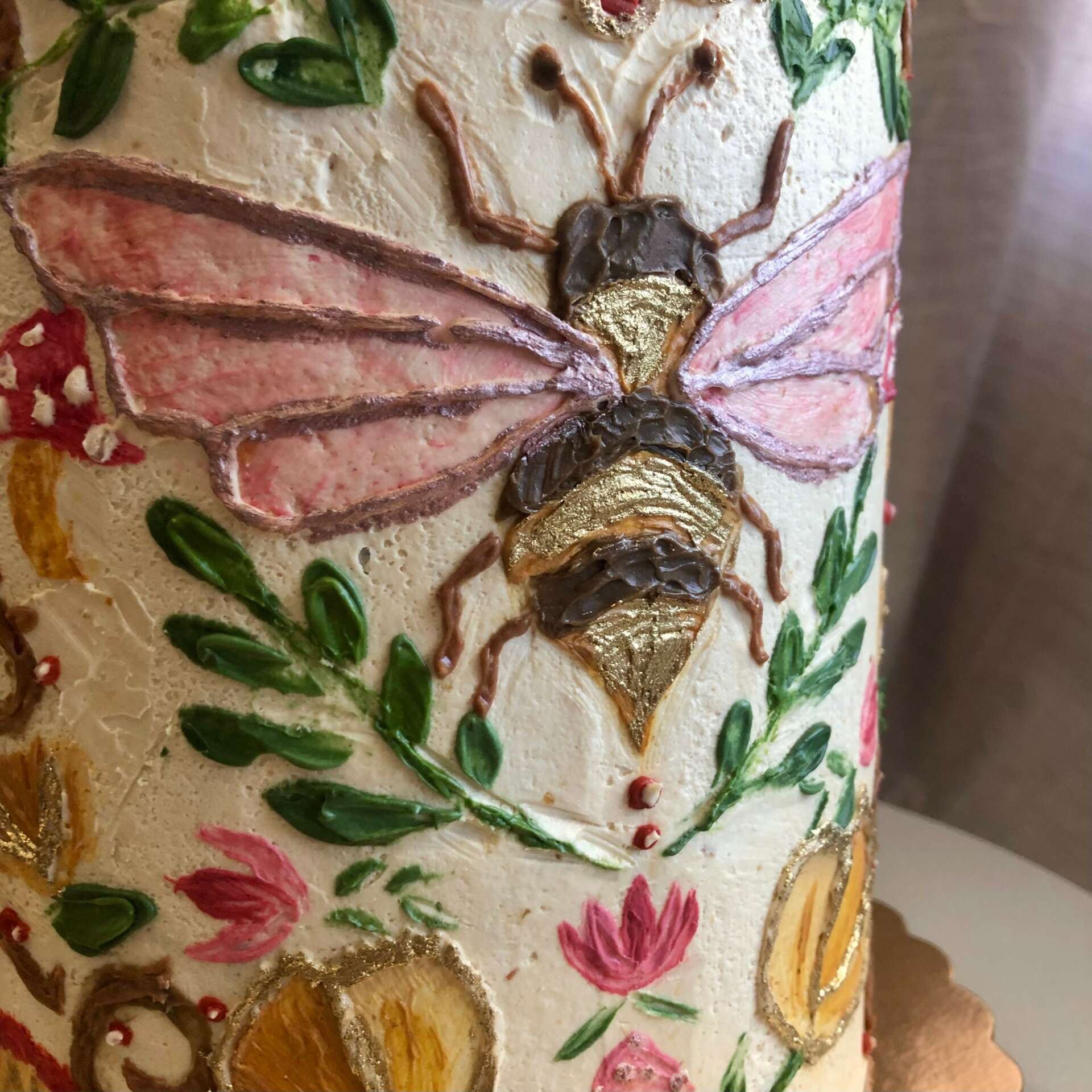
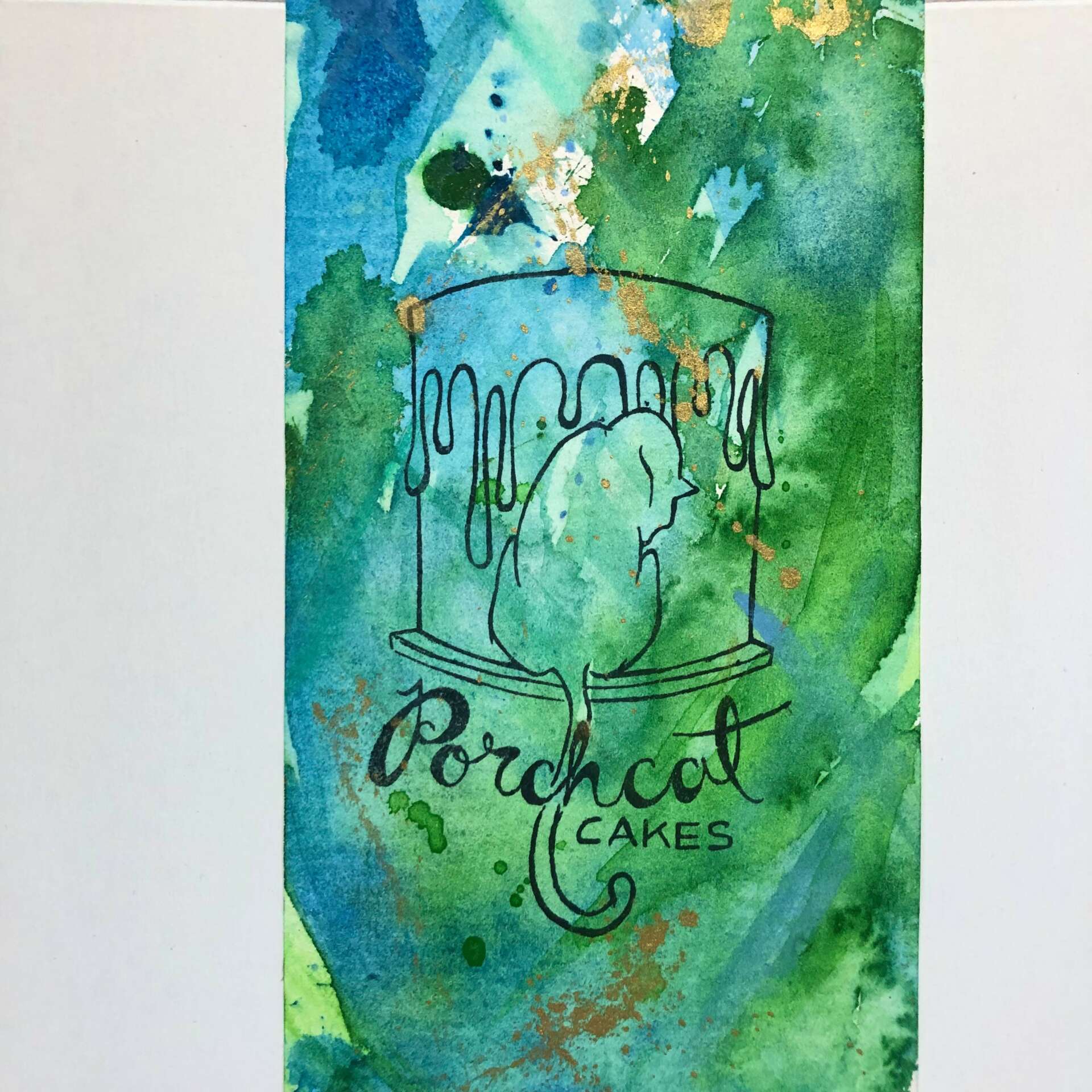
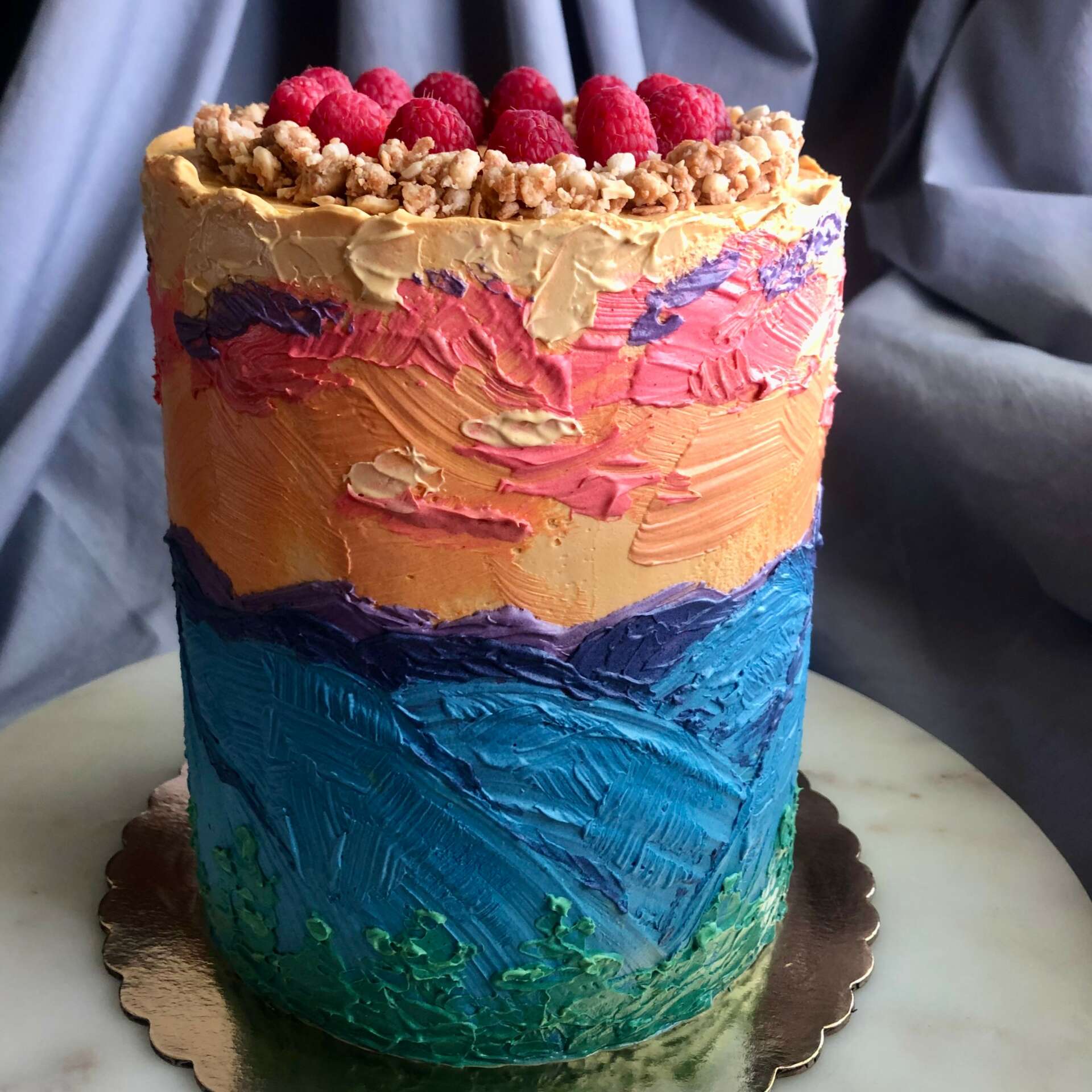
Great, appreciate you sharing that with us. Before we ask you to share more of your insights, can you take a moment to introduce yourself and how you got to where you are today to our readers
Hi, I’m Emma from PorchCat Cakes where I work closely with clients to design unique layer cakes for their small celebrations. PCC was born out of necessity during my first 6 months of sobriety—I was trying desperately to fill my time with activities so there wouldn’t be room in my brain for the alcohol cravings. Sugar helped with the physical part but I needed something to focus on that would take my mind off memories and the thirst. Wish I could say that “One night I thought up how to combine those needs, a completely new activity with sugar at the end: a layer cake!” But really I just wanted to make my partner something fancy for Valentine’s Day and had so much fun doing it, only realizing later that I hadn’t thought about drinking for the duration of that project. So the next week I made another, and another… baking is a very expensive hobby so eventually I went from giving cakes away to actually selling them, and a few months after that I set up an Instagram account just for Cake. It quickly became apparent that layer cakes combined many loves of my life into one neat little package; connecting with and serving people, cooking, writing, research, and creating something beautiful with my own hands.
Growing up I was never really excited about cake, definitely more of an ice cream person, so when I started learning to bake at age 31 it was with a different perspective than someone who’s been deeply entrenched in the classic standards their whole life. There are so many options and techniques that can be included in a layer cake so I knew there must be a way to create the cakes of my (albeit new) dreams, it was just a matter of figuring out what I really valued about dessert in general: contrasting textures, balancing flavors, exciting combinations, and of course something intriguingly beautiful to look at. All of those values have driven the mission for this business—I want to give customers a really special experience, cakes that are a little unexpected and more complex than the standard sponge and frosting. Unless specifically directed otherwise, each of my cakes includes: a crunchy element, a fluffy filling of some kind, a generous helping of something that drizzles (sauce, fudge, caramel etc), often two different frostings (most often Italian Meringue Buttercream because it’s on the Less side of the sweetness spectrum, so smooth, and somehow simultaneously light and structurally strong), and of course the cake sponge itself which is usually “soaked” with a complimentary syrup (or coffee, thinned fruit purée etc) to help preserve moisture and enhance the overall flavor profile. Utilizing so many different textural elements is very uncommon in home-bakeries, even ones that specialize in cake, but I wouldn’t love to do this job if I wasn’t excited at the prospect of eating the final products, so really I’m just trying to share my personal vision of what cake can be.
Something else I’m particularly proud of, and I don’t think is necessarily common to all custom cake bakers, is a Dessert Survey I developed early on to send to all the clients when we first start thinking about their celebration. There are some pretty standard questions, of course, like their expectations for this particular cake (sweet/salty, sweet/sour etc), and their aesthetic preferences for final decoration (looking at a client’s IG can help and I always welcome reference photos); but the most unique and important aspect of this survey is getting a broader idea of their sugar pallet, beyond just “I like vanilla cake and chocolate icing”. For example, if I know you also love to eat chocolate chip cookies and spoonfuls of peanut butter there would be the options of including those as fillings, or breaking those elements down into their minute components:
“Okay, so based on the cookie and overall sensation of nut butter they must enjoy warm,
brown sugary flavors—maybe I can layer brown sugar whipped cream inside with some
chocolate frosting, and the whole outside could be peanut butter buttercream…they also
must like semi-sweet chocolate, since that’s the classic in cookie dough, so maybe I use
those for the chocolate ganache drip over the top/sides. They obviously don’t mind
contrasting textures so there should be some crunchy element, either baked chocolate
crumbs, or ones made from powdered peanut butter, or milk crumbs for complimentary contrast”.
The process of converting a customer’s preferences into a full cake design is the most exciting puzzle—kind of what I imagine detective work would be like. I’m using a combination of clues, my own knowledge gained from previous experience, and doing a little digging (scouring resources for new or trusted recipes and/or practical development, i.e. testing,) to find the perfect answer for each client.
I also always ask, “How surprised do you want to be?” More often than not they trust me to come up with something they’ll love, and that level of confidence is always heartwarming; there are also customers who want to be completely involved in the process, which is actually more exciting for me since I don’t have many people to talk Cake with, so we go through many options before settling on their perfect design. My baking education has grown exponentially since I started in early ‘19, mostly because I started at basically zero, but also because I’ve had the enthusiastic support of this community that sets new challenges for me with nearly every project and they have unfailing faith that I’ll be able to deliver.
How did you build your audience on social media?
At first I was using the account to document everything as I learned to bake, fill, and frost cakes. It wasn’t exactly a tutorial style, more like a baking journal, for myself as much as for anyone else: “Let’s see what happens when I do This!” kind of thing… as my skills grew, and knowledge compounded, the stories got longer and more detailed, and pretty soon I was doing a full behind the scenes story for every cake I sold. The people who bought the cake seemed to enjoy knowing the full effort, and indeed the missteps, that went into their order so it became kind of an unspoken part of the package. A cake from me is a full sensory experience, and meanwhile the people who hadn’t actually bought the thing were watching too and getting more and more involved in my business. I heard from countless people that they so looked forward to the stories bc they were educational, funny, and very, very real. I definitely never claimed to be an expert on anything but my followers watched my technique and confidence grow over the years, and that personal connection is the most important part of my success. I definitely still do use it as a baking journal, something I can easily refer back to since almost all the stories are saved in the highlights, but now my experiments have a much higher Success rate and sometimes I can even guess at (or explain, although that’s more rare) the science behind why something worked or didn’t.
Since September ‘19 I’ve done 99% of my business through Instagram alone; although I haven’t actually hit even a thousand followers I’m close enough to taste it. I’ve spent absolutely nothing on advertising, and avoided reels for a solid year out of principle (my stubbornness has led to So Many Mistakes) but my customer base has grown from friends, to friends of friends, to coworkers of friends of friends, and finally to total strangers. This is a small city and I’ve been here almost 20 years so there were plenty of mouths to spread the word. I’m only one woman with a lot of actual baking to do so have often considered what it would be like to pass the social media baton to someone else; however, the close personal contact I gained through IG, with customers and the local home-baking community, has been a god send from the beginning and it really helped shape PorchCat as a whole. My personality is all over that page and in every one of the stories, from the music that I choose (because that’s what I can stand to listen to for the 3 hours it takes to make a full Cake Story), to the stupid jokes and commentary, and of course all the recipe/testing notes I write for myself and other bakers. I’ve made so many baker friends through the page and they’ve been amazing resources for commiserating, celebrating, and actual knowledge—connecting with people who really know what you’re going through is probably my favorite part of being on the social stuff for business. One of those women recently asked me what I found the secret to be for a successful social page and I told her, basically, “Don’t be afraid to be vulnerable—let people know you and your story—you’ll be spending a lot of time there so make it distinctive from the beginning and followers will be invested in supporting you as a person, as well as your business”

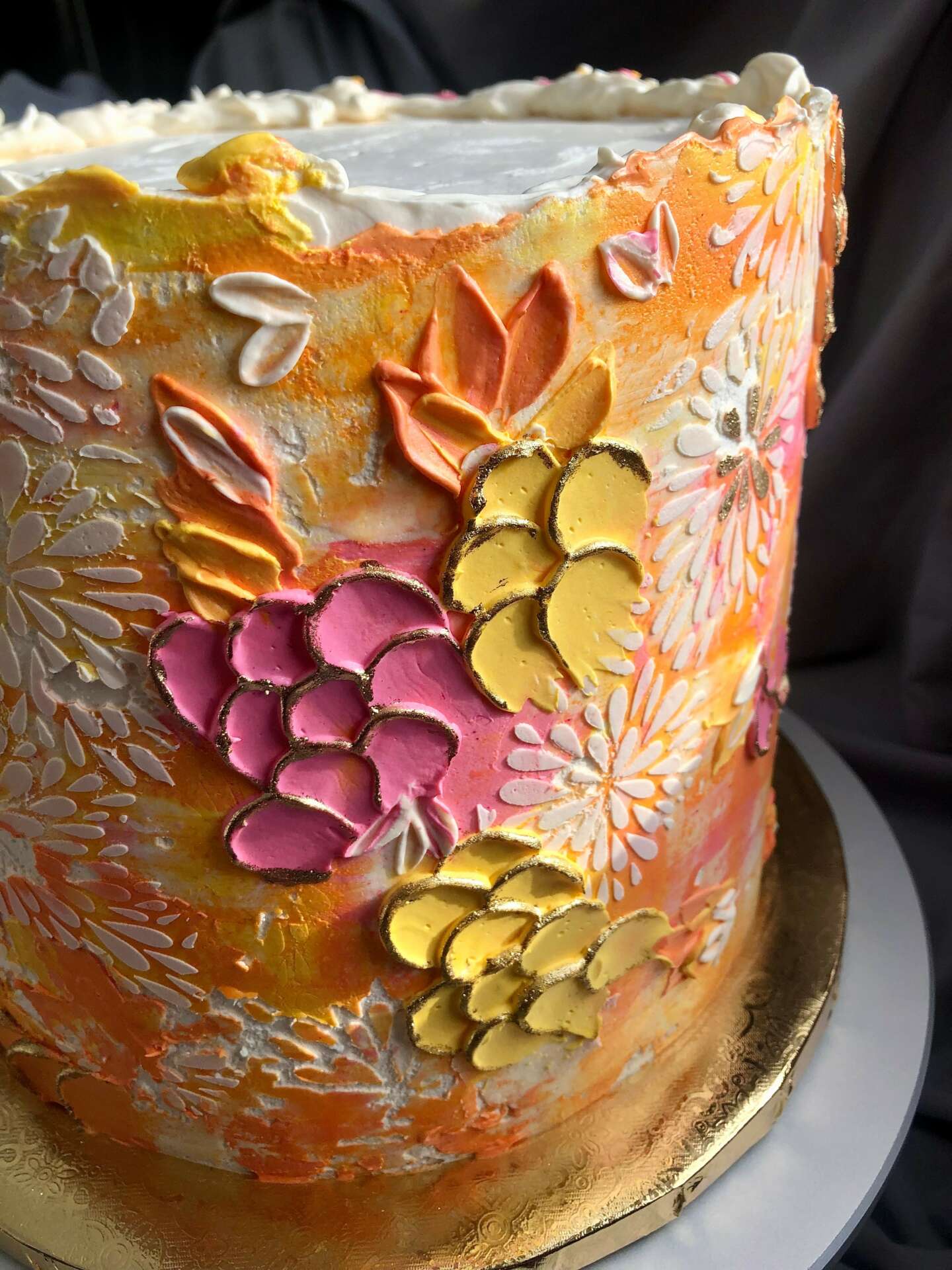
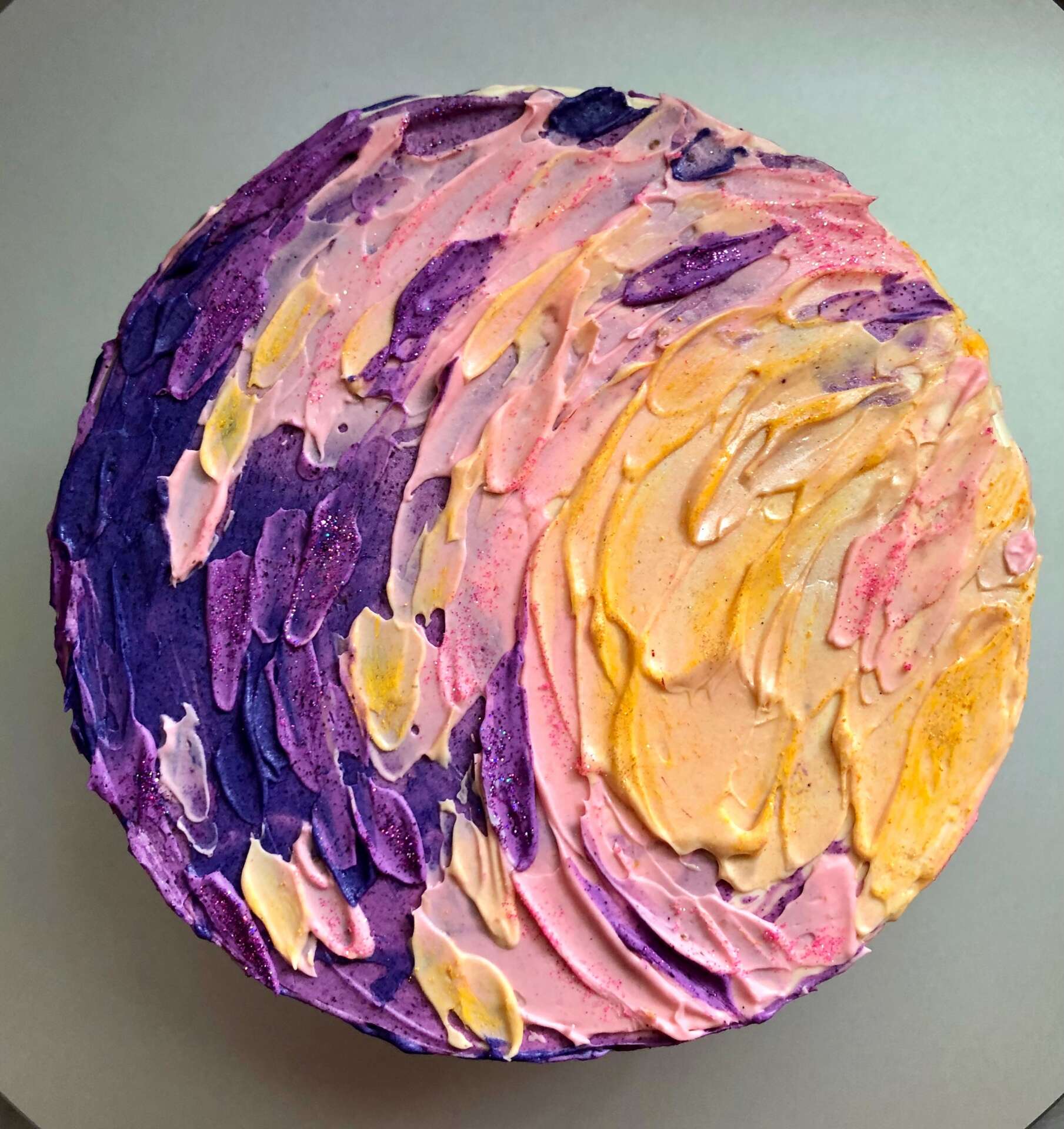
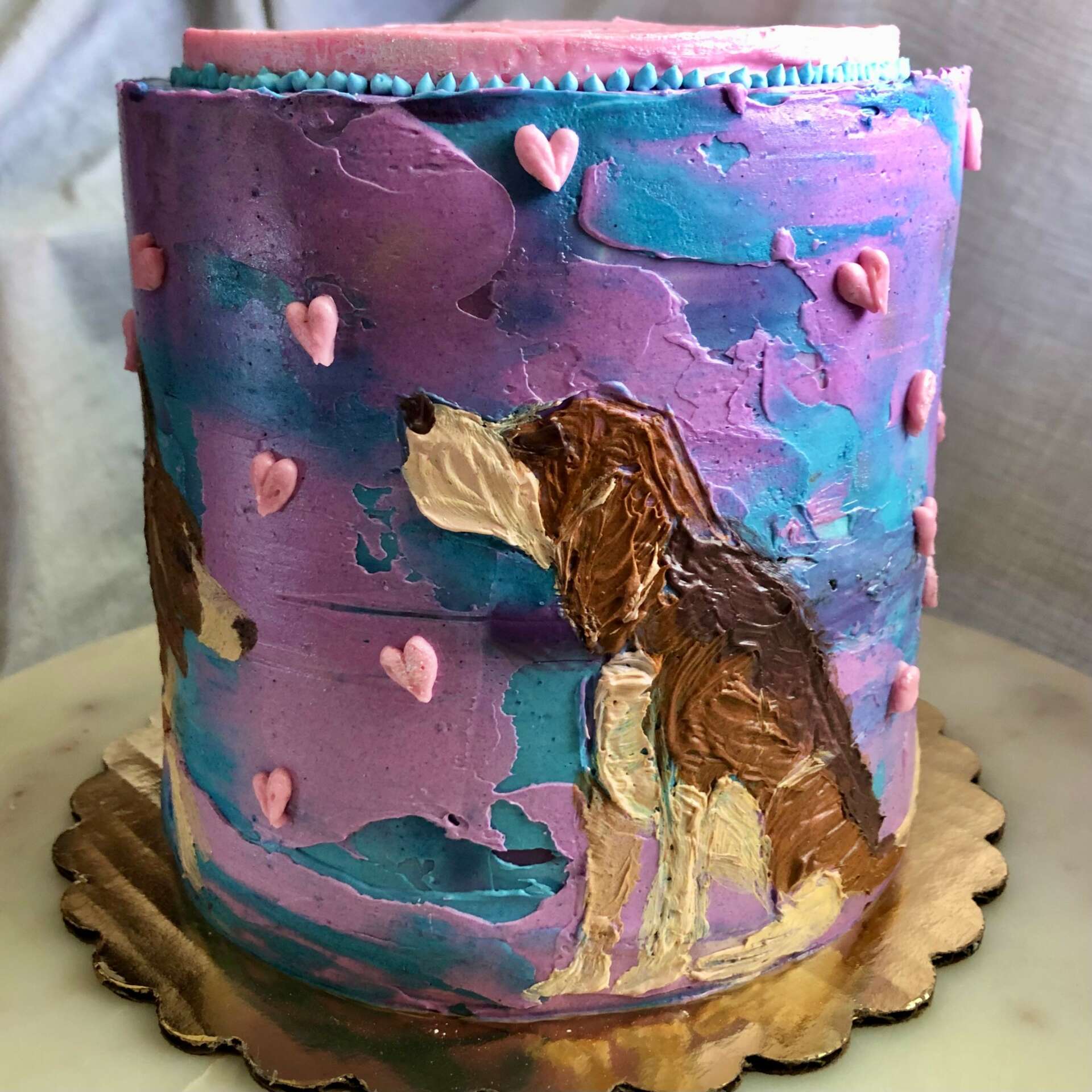
How about pivoting – can you share the story of a time you’ve had to pivot?
So right now, as I’m writing this in Nov ‘22, my books have been “closed indefinitely” for over three months. When i made that decision it was in order to gain some breathing room and try to recenter myself… PorchCat started in the early months of my sobriety so on top of the actual Learning To Bake part I’ve been attempting to learn how to run the business end while it was happening all around me, which means I’ve made a lot of mistakes and felt one step behind for over three years. I knew there was a chance that the business break would turn into walking away entirely— maybe once I didn’t Have To make cakes I wouldn’t want to anymore—but in fact this time and space has taught me so much about what my actual goals are and just how much I need to keep going with renewed focus. I’m still figuring out how to make PCC a sustainable, thriving business, something that I can quit my JobJob for, and I’ve promised myself that I wont wade back into the proverbial pool until there’s a clear plan for work/life balance in place. Meanwhile, I’m rediscovering the other things I love to do but haven’t had hours and hours to devote myself to as a sober, “centered” adult.
In this time I’ve gotten into a collaborative baking venture that didn’t wind up working out, but it did clarify some things I wasn’t one hundred percent clear about. Turns out, I am a Cake Baker, not a production baker—making lots of little desserts that are just one a couple of components is just not My Thing. Layering flavors and textures is not only what I KNOW how to do, it’s what I Love to do. So now I’m on my own again I’m trying to plan out how to do the thing I want but for the money I need. Leading up to the break I was also learning that not paying yourself leads to burnout. I put every cent back into the business, including whatever profit—in retrospect I’m sure that instinct was partially fear-based: I was scared to see the real numbers of how little I was actually making for all the countless hours of hard work. Always heard (in 15 years of working for small, independent businesses) that for the first five years The Business Is Life & You Don’t Get Paid. Maybe that’s still true, but right now I’m living in hope that there has to be a better way… the culture and appreciation for food and small-businesses has shifted so much since I heard that from 2003-2018, especially with this explosion of Maker “culture” in Knoxville. There are so many resources to take advantage of that I just didn’t have time or energy to use when PorchCat started. It was my own thing in my own little bubble and half the time I wasn’t even sure if I wanted it to BE a business. I just wanted to bake and not deal with the numbers, but suppressing the stress from not having a clear plan for the business end also leads to burnout! I wasn’t sure what exactly was going on but WAS sure I was doing it wrong. So, the plan is: have a plan. Talk to ppl. Know what you’re doing at least a little bit before you start because once it gets going there will be No Time to figure it out. Yes, you have to be able to adapt to new scenarios/landscapes, but there should at the very least be a goal that you’re striving for. Little goals are great, that was about all I could handle setting and achieving in the midst of the baking, but without the big ones it can wind up feeling like you’re flailing which leads to frustration and even resentment. My business isn’t dead right now, nothing has died, it’s just hibernating while I figure out new ways to succeed.
Contact Info:
- Instagram: @porchcatcakes


